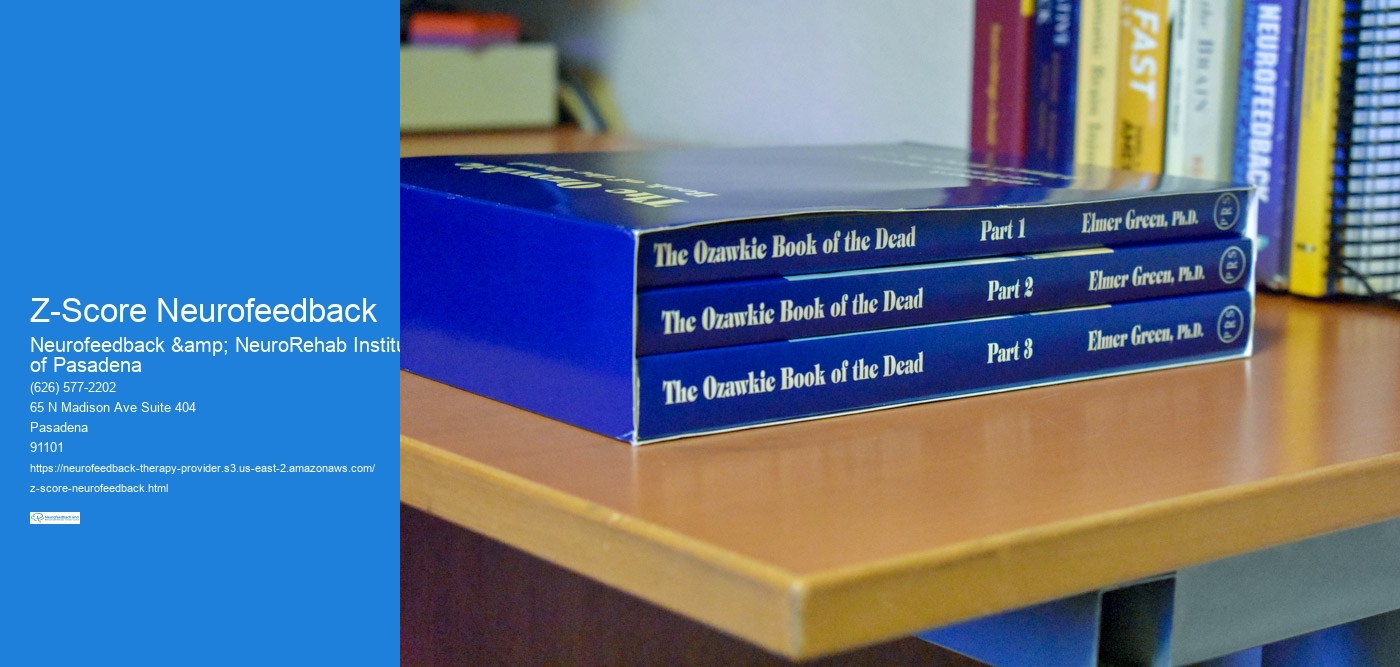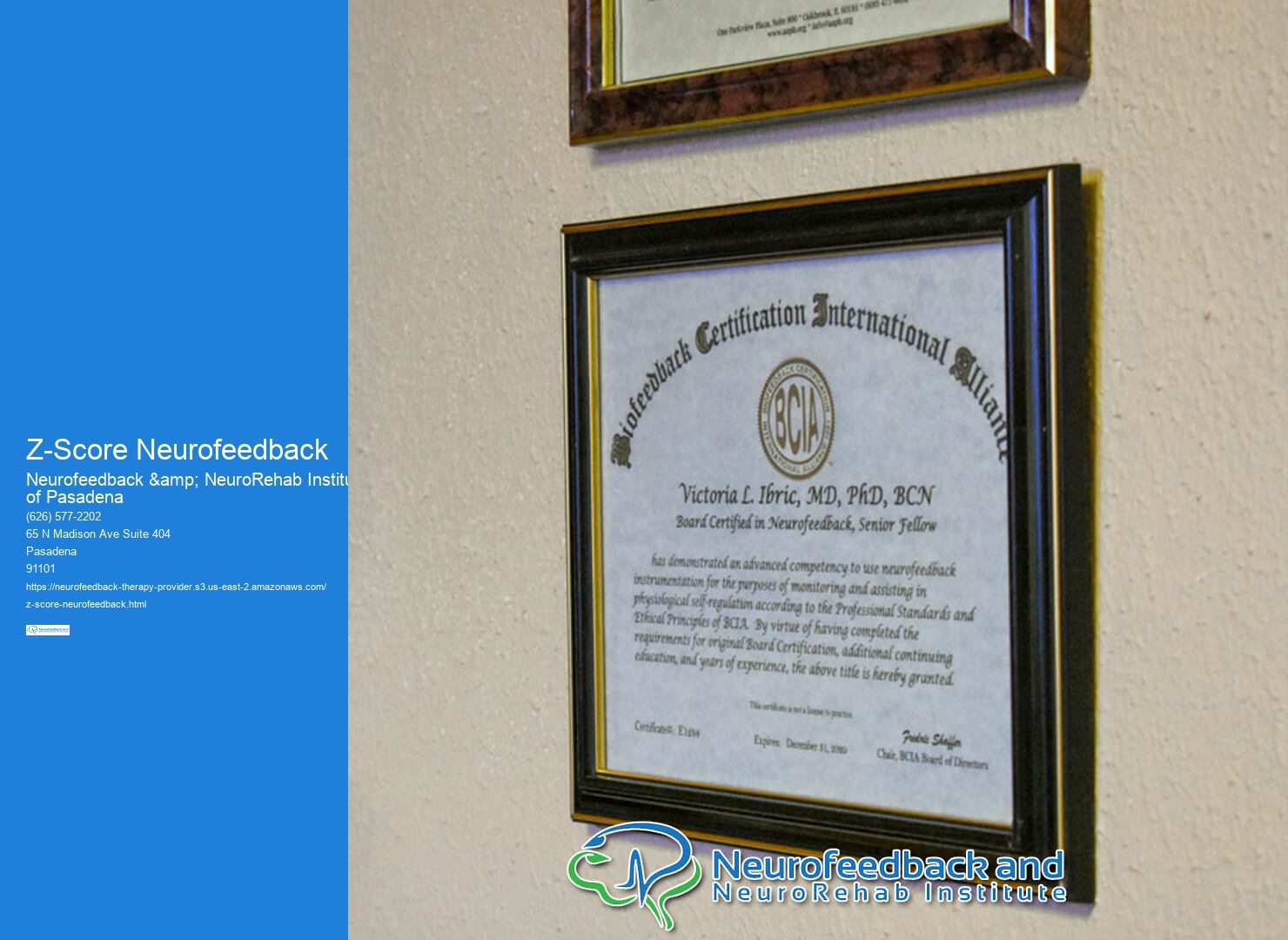

Z-Score Neurofeedback targets and addresses symptoms of anxiety and stress by focusing on regulating and optimizing specific brainwave patterns associated with these conditions. Brain Training Instructor By using real-time monitoring of brain activity, Z-Score Neurofeedback can identify and train the brain to self-regulate abnormal patterns, leading to reduced anxiety and stress symptoms. This approach helps individuals develop better self-regulation and resilience to stressors, ultimately improving their overall mental well-being.
Z-Score Neurofeedback aims to regulate and optimize brainwave patterns such as alpha, beta, theta, and delta waves, which are associated with different cognitive and emotional states. Neurotherapy Coach By targeting these specific brainwave patterns, Z-Score Neurofeedback seeks to bring them into a more balanced and optimal range, promoting improved cognitive function, emotional regulation, and overall mental well-being.
In terms of its approach and effectiveness, Z-Score Neurofeedback differs from traditional neurofeedback methods by utilizing a database-driven approach that compares an individual's brainwave patterns to a normative database. Neurofeedback Facility This allows for a more personalized and targeted training protocol, leading to potentially more effective outcomes for individuals with various neurological and psychological conditions.

A typical Z-Score Neurofeedback session involves initial assessment and mapping of an individual's brainwave patterns, followed by the creation of a personalized training protocol. During the session, individuals receive real-time feedback through visual and auditory cues, guiding them to self-regulate their brainwave patterns. The protocols and procedures are tailored to each individual's specific needs and goals, allowing for a customized and targeted approach to neurofeedback training.
Research studies have shown promising evidence supporting the efficacy of Z-Score Neurofeedback in treating conditions such as depression and mood disorders. Neurotherapy Specialist By targeting and training specific brainwave patterns associated with mood regulation and emotional processing, Z-Score Neurofeedback has demonstrated potential in improving mood stability and reducing symptoms of depression.
Yes, there are several neurofeedback programs specifically designed for veterans with traumatic brain injury (TBI). These programs utilize advanced neurofeedback techniques to address the unique cognitive and emotional challenges faced by veterans with TBI. Many of these programs are tailored to address specific symptoms such as memory loss, attention deficits, and emotional regulation. Additionally, these programs often incorporate a multidisciplinary approach, integrating neurofeedback with other therapeutic modalities to provide comprehensive care for veterans with TBI. These programs are often available through specialized clinics and rehabilitation centers that focus on serving the needs of veterans and individuals with brain injuries.
Neurofeedback studies have indeed explored the effects of meditation on brain activity and cognitive function. Research has shown that meditation can lead to changes in brainwave patterns, such as increased alpha and theta waves, which are associated with relaxation and attention. These studies have also investigated the impact of meditation on neural connectivity, neuroplasticity, and overall brain health. Furthermore, neurofeedback research has examined how meditation can influence various cognitive processes, including attention, memory, and emotional regulation. The findings from these studies provide valuable insights into the neurobiological mechanisms underlying the benefits of meditation and its potential applications in promoting mental well-being.
The Brain-Computer Interface (BCI) plays a crucial role in neurofeedback by enabling the direct communication between the brain and external devices, facilitating the real-time monitoring and analysis of brain activity. Through the use of electroencephalography (EEG) and other neuroimaging techniques, the BCI captures and processes neural signals, allowing individuals to gain insight into their brain function and learn to self-regulate their cognitive and emotional states. This technology enhances the effectiveness of neurofeedback training by providing accurate and immediate feedback to the user, promoting neuroplasticity and facilitating the development of self-awareness and self-regulation skills. Additionally, the BCI contributes to advancing research in neuroscience and clinical applications, offering new possibilities for personalized interventions and therapeutic approaches in various neurological and psychiatric conditions.
Neurofeedback has shown promise in addressing self-esteem and self-confidence by targeting specific brainwave patterns associated with these psychological states. By utilizing neurofeedback training, individuals can learn to regulate their brain activity, promoting a more balanced and positive emotional state. This can lead to improved self-perception, increased self-worth, and a greater sense of self-assurance. Through the reinforcement of desired brainwave patterns, neurofeedback can help individuals develop a more resilient and confident mindset, enhancing their overall well-being and quality of life. Additionally, neurofeedback may also contribute to reducing symptoms of anxiety and depression, further supporting a positive self-image and self-assurance.
Neurofeedback, also known as EEG biofeedback, is a non-invasive therapeutic technique that aims to regulate brain activity. While there is ongoing research on the potential benefits of neurofeedback for individuals with schizophrenia, it is important to note that the use of neurofeedback as a standalone treatment for schizophrenia is not widely supported by current clinical guidelines. However, some studies have suggested that neurofeedback may have potential as an adjunct therapy to help manage specific symptoms associated with schizophrenia, such as cognitive deficits and attentional impairments. It is crucial for individuals with schizophrenia to consult with a qualified mental health professional to determine the most appropriate and evidence-based treatment plan tailored to their specific needs.